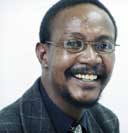
CFC, SABC and Sithengi extend festival reach
|
 by Mark Visser
by Mark Visser |
|
This year the Sithengi Festival and the Cape Town World Cinema Festival will be going beyond the Artscape Theatre, and reaching out beyond the city’s audiences. A joint venture by the Cape Film Commission, SABC and Sithengi will see an Outreach Programme running screenings in Khayelitsha, Guguletu and Mitchell’s Plein from 18 to 19 November 2006.
Following a successful premiere of "Tsotsi" at Fawu in Guguletu during last year’s Sithengi Festival, it was decided to extend the “reach” of the festival this year to include Khayelitsha and Mitchell’s Plein. With the Cape Film Commission playing a facilitation role and with generous funding from the SABC and the Western Cape Government, the venues will be coordinated with the assistance of the talented youth organization, Amarabella and Cre8F.
The Outreach aims to take the best of new South African content to local communities that are seldom granted the opportunity to see local films due to various limiting circumstances. Limited screening venues in these areas and the high cost of having to travel to a city centre to see a new release, usually have the big Hollywood blockbusters making the ticket sales. With many local films only being run from art house theatres that are usually more costly than the usual cinema seat it’s no wonder that irregular audiences would rather vie for what appears to be the only sure thing.
However, in an attempt to increase audience awareness the programme is turning easily accessible, centralized community venues into screening theatres for part of the festival. The screenings will be run in the three venues, namely Zolani Community Centre in Nyanga, Luyolo Community Centre in Guguletu and Alliance Francais in Mitchell’s Plein after the only movie theatre, Cinemax closed its doors two months ago. The CFC ran a host of similar screenings this year, partnering with the Ikapa Youth Film Festival in June and ran another screening at the In-San-Ity Festival in Clanwilliam in October.
The lineup will showcase the comedy premiere “Bunny Chow” as well as the other top local features to be screened at this year’s Cape Town World Cinema Festival.
Bunny Chow, a South African comedy set for an early 2007 release by Ster Kinekor will be this year’s World Cinema Festival Premiere with a host of other acclaimed films in tow. The John Barker comedy about three comedians’ adventure to South Africa’s biggest Rock Festival had its world Premiere at this year’s Toronto International Film Festival with good reviews and will be premiering in the US at the American Film Institute Festival 2006 in Los Angeles. Other films to be screened include Son of Man from “uCarmen” director Mark Dornford-May, “Front Line”, “Life and Lyrics”, “Counting Heads”, “Road Trip” and “Hip Hop Revolution”.
SABC will also be bringing the Bunny Chow Road Show to the venues as part of the Festival with cast and crew from the film also attending. Other events include SABC1’s Gospel Gold, which will be taking place on the Sunday at Luyolo Centre and broadcast the following week.
|
|
Building A Partnership In Tourism – A First In South Africa
|
Reflections On The Tourism Conference
|
 |
Tourism International Liaison |
|
Writes: Edwin Sipho Rihlamvu
Tourism International Liaison
Skills development, retention and transfer in the tourism sector involve a wide range of public, private and civil society actors. Success in skills development requires these actors to work in a commonly agreed direction and properly coordinated manner. These were collective voices that chimed at the first ever National Tourism Skills Development Conference that was held in Muldersdrift, Gauteng, South Africa in October 2006.
The conference, which was subtly themed; BUILDING A PARTNERSHIP IN TOURISM was organized under the auspices of the Department of Environmental Affairs and Tourism (DEAT) in partnership with the Tourism Hospitality and Sport Education and Training Authority (THETA) and the National Business Initiative (NBI).
Why the need for the Conference
Addressing the 600 – strong conference that attracted a maze of respected industry players, politicians, senior governments officials, private sector community, academics, trade unionists, non-governmental organizations and international delegates including those from the United Nations World Tourism Organization (UNWTO), Mr Marthinus van Schalkwyk, Minister of Environmental Affairs and Tourism insisted that the entire industry needed to address the lack of skills in the tourism sector in order to provide efficient services to tourists.
"We recognize the efforts by larger business to invest in skills development in spite of the difficulties they have experienced in accessing training incentives. However, the challenge in general is to find ways to improve the institutional responsiveness to skills demands of domestic and foreign investors," said Van Schalkwyk referring to the fact that about 90 percent of the scarce skills in the tourism sector are in the high-skills level band.
Tourism within the international context
Tourism is a nationally recognized sector that can contribute to economic growth and transformation, and the reduction of poverty. That is why tourism is being deliberately positioned to benefit from South African government’s massive investment of R370 billion on infrastructure development, which will greatly improve the country’s offering to tourists.
However, despite the growth and apparent robustness of the tourism sector, local and international thinking show that this spiraling process requires systematic, coordinated and constant review of markets and the dynamics of skills demand. This because the skills required today may not be the same, as those required ten years from now.
Skill requirements – strengthening South Africa’s competitiveness
Gauteng Premier Mbhazima Shilowa said his province had prioritized skills development in the sector especially in view of the 2010 FIFA Soccer World Cup.
'We need to ensure that the training we provide to marshals during the world cup goes beyond them marshalling crowds.
They must be able to give advice to supporters when they ask where to find entertainment after a match,'' challenged Mr Shilowa recalling the fact that one of the most critical achievements for Germany was that they had officials who were conversant in all 32 languages of the participating countries at all the entrance to the stadiums and at the airports.
In terms of language training, the Tourism Branch within the Department of Environmental Affairs and Tourism (DEAT) has led processes, which resulted in the training of black tourist guides from across the country in French, Spanish and most recently Chinese.
Commenting on the rationale for that undertaking Dr Patrick Matlou, Deputy Director General for Tourism said: “We strongly believe that tourist guides are the first point of contact between tourists and South Africa and thus should be able to speak their language proficiently while understanding their cultures. Furthermore, the cultural, religious, historical and strategic affinity between our country and those of our tourist’s itself makes language training important in the context of Africa’s renewal positioning”.
These training programmes are so intense such that the tourist guides are expected to undergo experiential training in the countries where those languages are spoken! And also, there is an in-principle understanding between the tourism industry and DEAT to absorb tourist guides as soon as they complete foreign language training.
Training in tourism-related fields– status
Meanwhile, preparations are afoot to train historically disadvantaged tourist guides on languages of foreign nationalities that are likely to descend to South Africa’s shores for the 2010 FIFA Soccer World Cup: Italian, Russian, German, Portuguese and Japanese.
“Markets change and so do the responses of competitors to changing demand. International competition does not rest and neither can South Africa’s commitment to understanding market change and the development of robust response underpinned by world-class tourism personnel,” said Ms Patience Molokoza, Director – International Tourism Relations.
Ms Molokoza was referring to interventions that were championed by her Directorate, which resulted in the training of numerous national and provincial officials by the UNWTO on relevant areas such as tourism destination marketing, information and knowledge management as well as creating opportunities for officials to attend practicum that are organized by the UNWTO, Commonwealth and other acclaimed international training institutions.
After training – what else?
The Managing Director of the Southern Sun Group Mr Helder Pereira said poaching of staff in the industry was rife and had a negative impact on the industry.
''South African hotel managers are highly sought after, especially by developed countries as they are highly regarded," said Mr Pereira. According to him, one of the major challenges in the industry was not only to provide training to upcoming entrepreneurs who are starting businesses such as guesthouses, but also to provide them with business opportunities.
''We cannot be satisfied that we have trained a certain number of people while we do not give them business or recommend them to visitors when our hotels are full. Otherwise what happens after we have trained them, where are they now going to get business to enable them to survive if we do not assist them with getting it?'' he asked.
Mr Lulamile Stuurman, Director – Tourism Human Resources Development and project manager for the organizing committee of the Conference called on the business sector to support the government's national strategy on skills development. This he said would address the problem of skills development in the tourism sector.
Conclusion
“It may often appear that government, business, labour and communities have competing interests but we have a powerful common interest when it comes to developing skills and people. There is a lot that we can achieve by aligning our goals and efforts. Consensus building is never an easy process, but it results in more robust solutions” said Minister Marthinus van Schalkwyk, cementing the BUILT PARTNERSHIP IN TOURISM - A FIRST IN SOUTH AFRICA.
|
|
Cape Town Tourism and the Hout Bay tourism industry
18 October 2006 |
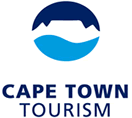 |
|

From left: Timothy Jacobs, Chris Dyzel, Ian McPherson, Nia van Damme-Sutherland, Maria Ngetu, Mike Kokhuis, Chris Frechos , Megan Adams, Mariette du Toit |
Cape Town Tourism had an afternoon of discussion pertaining to the Hout Bay tourism industry and Cape Town Tourism’s services offered to both visitors and members. They’ve opted to make Cape Town Tourism members and staff part of the process of transformation in their ongoing quest to ensure that Cape Town is positioned as a world class destination.
General Manager of Cape Town Tourism, Mariëtte du Toit, discussed with various members of the community and local businesses, the effects of broad-based black economic empowerment and the support systems in Hout Bay for emerging black businesses, opportunities for Hout Bay tourism facilities to market themselves via the www.tourismcapetown.co.za/houtbay site as well as Cape Town Tourism being at the heart of the 2010 Task Team.
Cape Town Tourism welcomed the heartfelt debate & the honest participation as well as the fresh and creative ideas that will enhance the visitor’s experience to this beautiful harbour village.
|
|
Hout Bay Black Business Opportunities Forum
|
 |
Answers to
Frequently Asked Questions |
|
|
by Jonathan Dreyer

|
Due to frequently asked questions I would like to recall HBBOF’s purpose and its objectives:
The Hout Bay Business Opportunities Forum represents the interest of the Black (African, Coloured and Indian) Business Community in Hout Bay, which specializes in Fishing, Tourism, Construction, Event Management, Youth Entrepreneurship, Retail, Transport, Hospitality, Property Development and Manufacturing.
Mission Statement
HOUT BAY BUSINESS OPPORTUNITIES FORUM’s mission is to contribute effectively to the economic and social development of the region in its area of interest by:
- Co-ordinating business relationships amongst its members
- Identifying business opportunities
- Facilitating the development of local capital
- Promoting the development of technology in the region
- Striving to effect changes beneficial to Black Business people and for the development of the previously disadvantaged community in Hout Bay
- Assisting people with skills desiring the establishment of their own business through amongst others a Training Programme
- Seeking contracts and investment opportunities from and establishing relationships with prospective business associates
- Developing and propagating a strong code of business conduct which will be guided by the principles of non-racialism, non-sexism and democracy, and a sustained sense of social responsibility
|
|
Van Riebeeck’s plan to confine the KhoiKhoin to the Hout Bay area
|
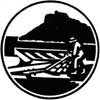 |
Hout Bay Museum |
|
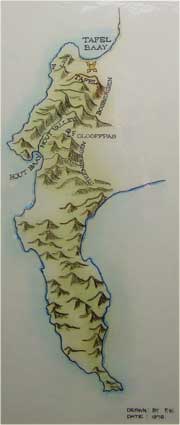 After an investigation of Hout Bay valley and the surrounding mountains on the 14th August 1657 van Riebeeck writes in his journal:-“….it was found that these passes could be closed at no fewer than 6 different places, viz. at the Clooffpas (Constantia Nek), between the Steenbergen and the Bosbergen sjown on chart as marked with the letters “F” and; on the knee of the lion (Clifton) also marked “F”; further in the kloof between the Lion Mountain and the Table Mountain, and at 3 other places in the Hout Bay vallay, in all 6 places to be blocked up. By these means Harry and the Kaapmans, having been enticed hither, could be confined within the said bounds where they would have sufficient pasturage for all their cattle, and than out of the increase, the needs of the Company could also be supplied according to her wishes by payment of copper and tabacco. These Hottentors would be allowed to go in and out of that area freely, but without their cattle, and to proceed inland to obtain more animals.
They would remain in possession of their own cattle under the Company’s protection, but would be obliged to sell cattle to us and to fetch more when their stock became unduly reduced in numbers”.
After an investigation of Hout Bay valley and the surrounding mountains on the 14th August 1657 van Riebeeck writes in his journal:-“….it was found that these passes could be closed at no fewer than 6 different places, viz. at the Clooffpas (Constantia Nek), between the Steenbergen and the Bosbergen sjown on chart as marked with the letters “F” and; on the knee of the lion (Clifton) also marked “F”; further in the kloof between the Lion Mountain and the Table Mountain, and at 3 other places in the Hout Bay vallay, in all 6 places to be blocked up. By these means Harry and the Kaapmans, having been enticed hither, could be confined within the said bounds where they would have sufficient pasturage for all their cattle, and than out of the increase, the needs of the Company could also be supplied according to her wishes by payment of copper and tabacco. These Hottentors would be allowed to go in and out of that area freely, but without their cattle, and to proceed inland to obtain more animals.
They would remain in possession of their own cattle under the Company’s protection, but would be obliged to sell cattle to us and to fetch more when their stock became unduly reduced in numbers”.
However later investigations showed that at least 10 places would have to be closed up and the positioning of 100 soldiers would be necessary to guard the various passes. The plan was therefore dropped.
|
|
Wildlife and Environment Society of South Africa
|
by Patrick Dowling, Environmentalist
 |
Something Fishy about Seafood Supplies
|
 |
Marine week 2006 has come and gone, but the problems, which beset the fisheries of the world, continue.
The truth of the matter is that the combined international fishing fleet, much of it subsidized by governments, is more than twice as large as the fish stocks can accommodate. The net result, if you’ll excuse the pun, is rapidly falling fish populations with numerous regional collapses. White Steenbras is a South African example where this is down to less than 5% of historical levels. Our much reported on abalone fishery is alleged by some to be down to a mere 1 % of historical levels in the wild owing to continued violent criminal activity which the authorities are unable to control. Even that mainstay of fish and chip shops and seafood retailers, hake or stockfish, is not as healthy as it should be because of over-fishing of mature adults and pressure to enlarge the number of quotas.
Instead of working hard at curtailing demand and educating the public the commercial response to the crisis has been to look at alternative sources of fish to satisfy demand. In some cases this involves marketing the hitherto by catch or throw away fish to an undiscerning public. More dangerously however there is increasing pressure to develop aquaculture on a massive scale and so farm desirable species like salmon either in ocean cages or in inland pools. Here the focus is on producing valuable weight rather than healthy biodiversity. The exercise involves the use of antibiotics, tinkering with genetics, the production of contaminated water and the conversion of tonnes of one fish species like sardines to make fewer tonnes of food for the required type. Internationally the industry has developed quickly, learning some expensive economic and environmental lessons along the way.
Despite a difficult coastline for it South Africa is now moving into the aquaculture industry with resolve and, one would hope, salutary knowledge gained through the mistakes of others. Commercial mussels and oysters are already well established, financially viable and environmentally acceptable. Experiments with some our own indigenous species like Kob and Geelbek are more problematic for some of the reasons mentioned above and the import of exotic freshwater fish such as Tilapia, Carp and Australian crawfish have frequently proved to be disastrous as they can escape and make our waterways unhealthy for threatened locals like the Clanwilliam Redfin.
The Southern African Sustainable Seafood Initiative (SASSI) is a project undertaken by WWF, supported by the Department of Environmental Affairs and Tourism and endorsed by the Wildlife Society. It sets out to inform seafood eaters and traders about the importance of consumer knowledge and choices in selection from the marine menu with an easy to use, practical, colour-coded guide. More information from www.wwf.org.za/sassi. It such cautionary texts that we need to guide us towards “sustainable development” more than demand-driven business plans that promise quick profits.
|
|
|
 No. 013-01
No. 013-01
|
This Month Welcome Page
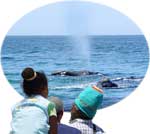 |
Contents:
Real Organic Stuff
click on loaf for the better view
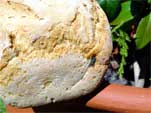
|
|
Please Diarise:
Hout Bay Business Opportunity Forum
Presentation by the Western Cape Opportunity Forum
(WECBOF)
1 Beach Road
(old Yacht Club)
16 November 2006
Time: 18h30
FACES OF THE CAPE
Exhibition of Photographs
by
Rudolf Rieger
at the
Renaissance Café
The Passageway
Hout Bay
THE SEMBACH ART GALLERY
20 Sep - Dec 2006
 Exhibition Exhibition
GOOD HOPE ART
Community Arts Workshop
Castle of Good Hope
Adam Tas Room
Cape Town
ongoing
|
|
LOCATIONS
Hout Bay Harbour
Early Morning Visit
|
|
|
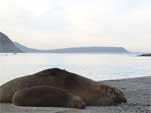
| |
|
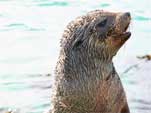
| |
|
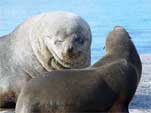
| |
|
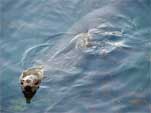
| |
|
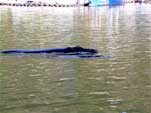
| |
|
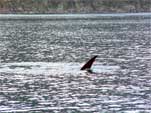
| |
|
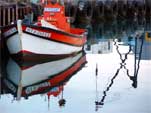
| |
|
| |
|
|
Cultural Exchange Program
If somebody wants to know more about this or would like to become a sponsor of
On Set Images'
Cultural Exchange Project
please contact
 gallery@onsetimages.com gallery@onsetimages.com
| |
|
|
|
Distribution:
Our e-News are distributed to arts & culture, the film, stills & commercial industry, wildlife, heritage, companies servicing and attracting tourism ( tourist offices, travel agents, tourist guides & tour operators) locally and abroad as well as to people who have an interest in visiting South Africa.
© 2006 On Set Images. All rights reserved.
Published by

To ADVERTISE in this Newsletter
 news@onsetimages.com or call 021 790-2227 news@onsetimages.com or call 021 790-2227
Alternatively send us your CONTACT INFORMATION
Print Newsletter (note: set to landscape format) 
|
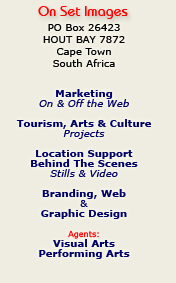
|
|














